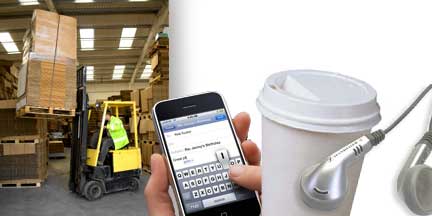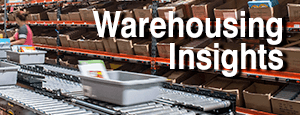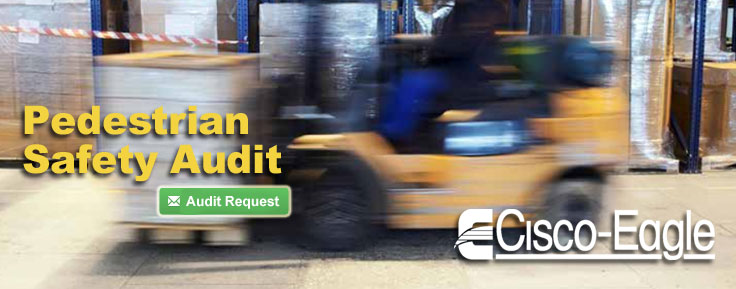Warehouse Safety: Distracted Forklift Drivers
Texting, phone calls, music, eating/drinking, and smoking shouldn't distract drivers in your operation

If you’ve ever stopped at a traffic light, and shuddered at the texting, teenage (or all too often, an adult) driver in the next lane, you probably thought this is an irresponsible person who shouldn’t be behind the wheel. Given statistics that smart phone users are impaired as drunk drivers, it’s a serious and deadly issue; most states have laws specifically forbidding texting on the road. The question is, do you tolerate that kind of distractions for forklift drivers in your warehouse? Should you have the same rules? (Short answer: yes).
We understand the potential for devastation when forklifts collide with people, machinery, or storage equipment like racks
The forklift is probably the most dangerous piece of equipment in any given industrial operation. A forklift driver who’s texting, taking cell calls, eating, smoking, plugged into an MP3 player, or drinking a soda multiplies the risks associated with that lift truck. Simply telling drivers that the only thing they’re allowed to do is drive is a good start, but you should also check their hours in service. Sure, it’s easy to get buckled in on a busy day, but it’s significantly less safe the more hours a driver logs. If your shifts go into overtime, a tired or drowsy driver can be just as dangerous as one who’s texting or updating a twitter status or checking email. Also, don’t talk to drivers as they move. Stop the forklift and have a conversation.
That driver is not traveling the same speed as a moving car, but his vehicle is significantly less maneuverable. Its brakes aren’t as good. When loaded, his visibility may be terrible. That driver often operates in a noisy, busier, more distracting environment than a truck driver on the road.
The bottom line: don’t allow drivers to do anything but drive. Discourage conversations with pedestrians, encourage frequent breaks, and disallow phones, food, and music players.
While certified, trained drivers are always your best safety system, you should also consider automated warning sensors, protective forklift barriers , visibility mirrors to help increase driver and pedestrian vision, and forklift dock safety gates to prevent spills and drive-offs.
Tags: distracted driving, warehousing, Pallet Rack, forklift safety
Scott Stone is Cisco-Eagle's Vice President of Marketing with 35 years of experience in material handling, warehousing and industrial operations. His work is published in multiple industry journals an websites on a variety of warehousing topics. He writes about automation, warehousing, safety, manufacturing and other areas of concern for industrial operations and those who operate them.




